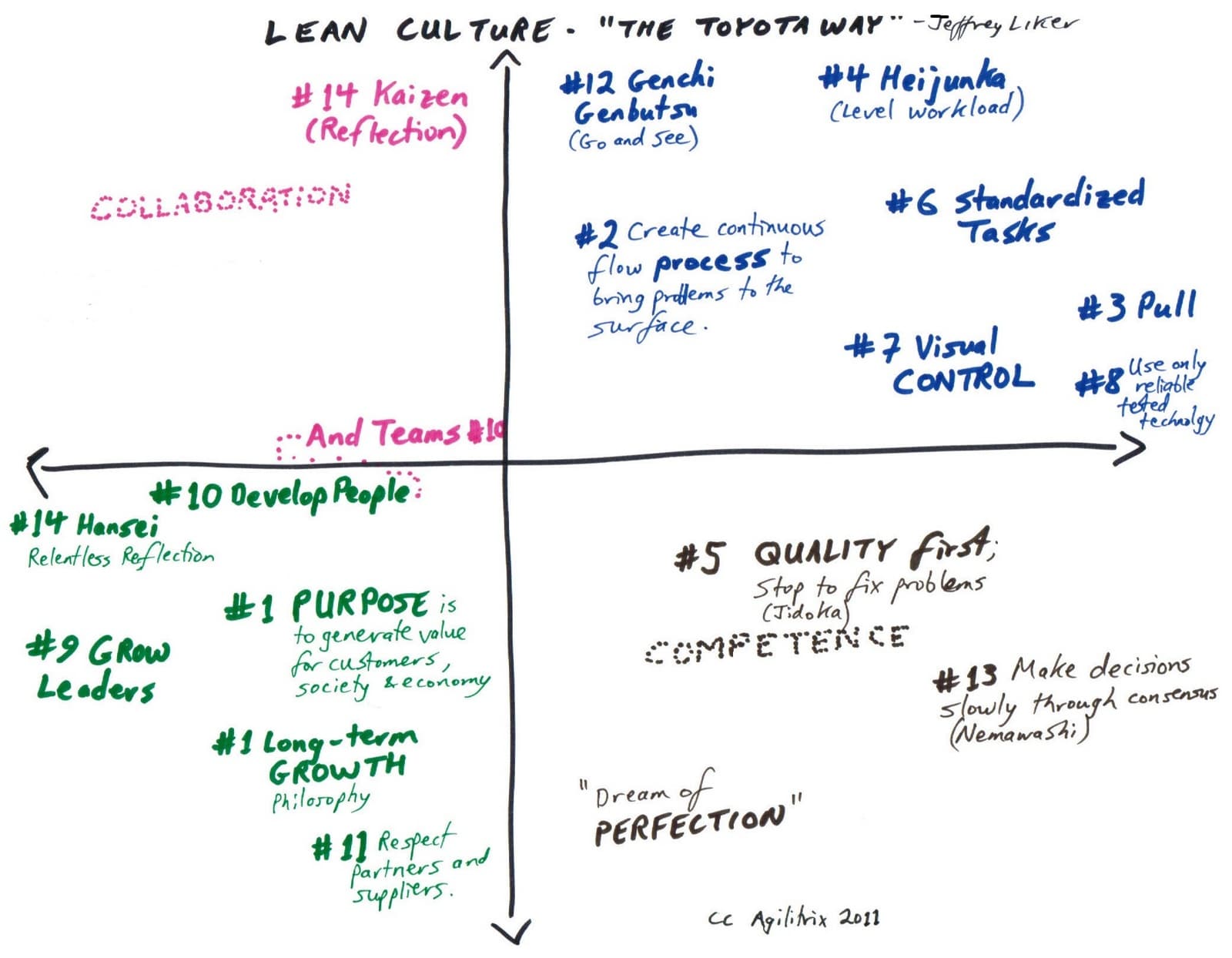I have thought for a long time that Agile and Lean are pursuing similar goals and quite similar in many respects. Although compatible, I now see they have significant differences in focus. (Reader’s Note: this analysis was done in early 2012 but became a forgotten appendix for my book on Agile Culture. Thanks to Liza Provenzano who sparked a conversation on this topic at Impact99.) The Schneider model is a very good tool for creating a quick and understandable analysis of a stated or implied culture system. If you are not familiar with it, I suggest taking a quick read and then coming back here. Consider the result (below) where the principles of Lean are placed into the Schneider culture model. I used Jeffrey Liker’s 14 point model from his book The Toyota Way. As we can see the two dominant cultures are Cultivation and Control, with Competence a distant 3rd when we place each principle on the model.  The focus of Lean and Toyota Production System is on effective management of manufacturing facilities. As a result, it is not surprising to see such as strong operational focus with elements of control. With this model of Lean, Collaboration culture is not strongly valued. Here there is a striking difference between Agile and Lean – Agile is much more about people since Collaboration and Cultivation are dominant. I would expect a different result if we looked at the culture of the Toyota Product Development which I imagine would be more similar to Agile. Schneider identifies Cultivation and Control as opposites so having these be co-dominant would imply that either 1) the Schneider model is not sufficiently complex to deal with Lean philosophy, 2) The principles in Liker are a confused westernized attempt to model Lean based on the Toyota Production System or 3) I have misinterpreted the principles. Sadly, I don’t know the answer but this perhaps is indicative of the challenges that are encountered in real life with most failed attempts to instill a Lean culture. I am aware that respect for people is considered a fundamental aspect of Lean. I have two observations to make. First, respect for people does not imply Collaboration culture. Second, Lean can be a dehumanizing system.
The focus of Lean and Toyota Production System is on effective management of manufacturing facilities. As a result, it is not surprising to see such as strong operational focus with elements of control. With this model of Lean, Collaboration culture is not strongly valued. Here there is a striking difference between Agile and Lean – Agile is much more about people since Collaboration and Cultivation are dominant. I would expect a different result if we looked at the culture of the Toyota Product Development which I imagine would be more similar to Agile. Schneider identifies Cultivation and Control as opposites so having these be co-dominant would imply that either 1) the Schneider model is not sufficiently complex to deal with Lean philosophy, 2) The principles in Liker are a confused westernized attempt to model Lean based on the Toyota Production System or 3) I have misinterpreted the principles. Sadly, I don’t know the answer but this perhaps is indicative of the challenges that are encountered in real life with most failed attempts to instill a Lean culture. I am aware that respect for people is considered a fundamental aspect of Lean. I have two observations to make. First, respect for people does not imply Collaboration culture. Second, Lean can be a dehumanizing system.
The Bottom Line
The bottom line for me is that we cannot safely ignore the culture we are working in or the culture that our ideology and tools bring with us. It is only by seeing the bigger picture and letting go of labels and tools that we can make effective, lasting change.


